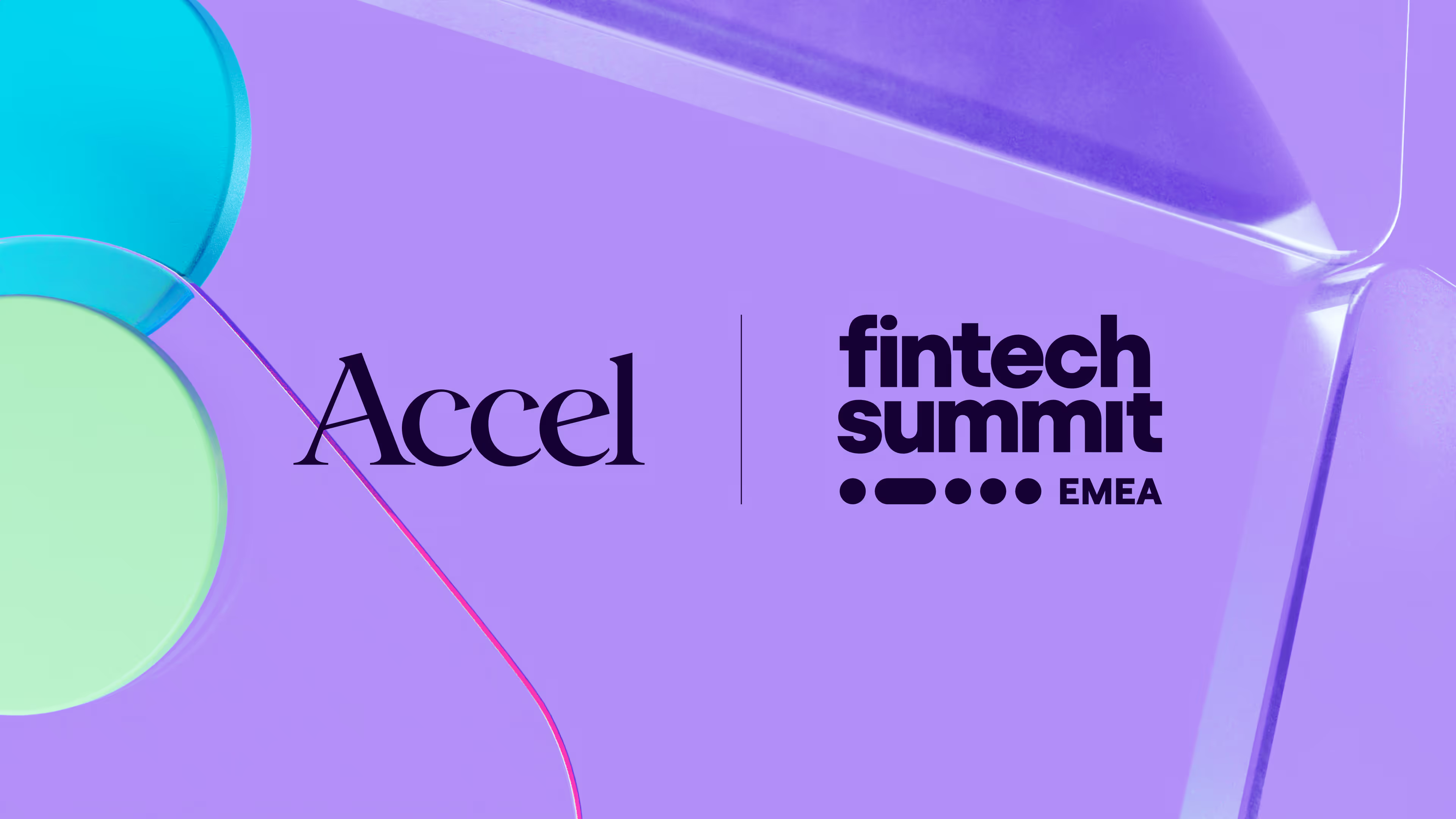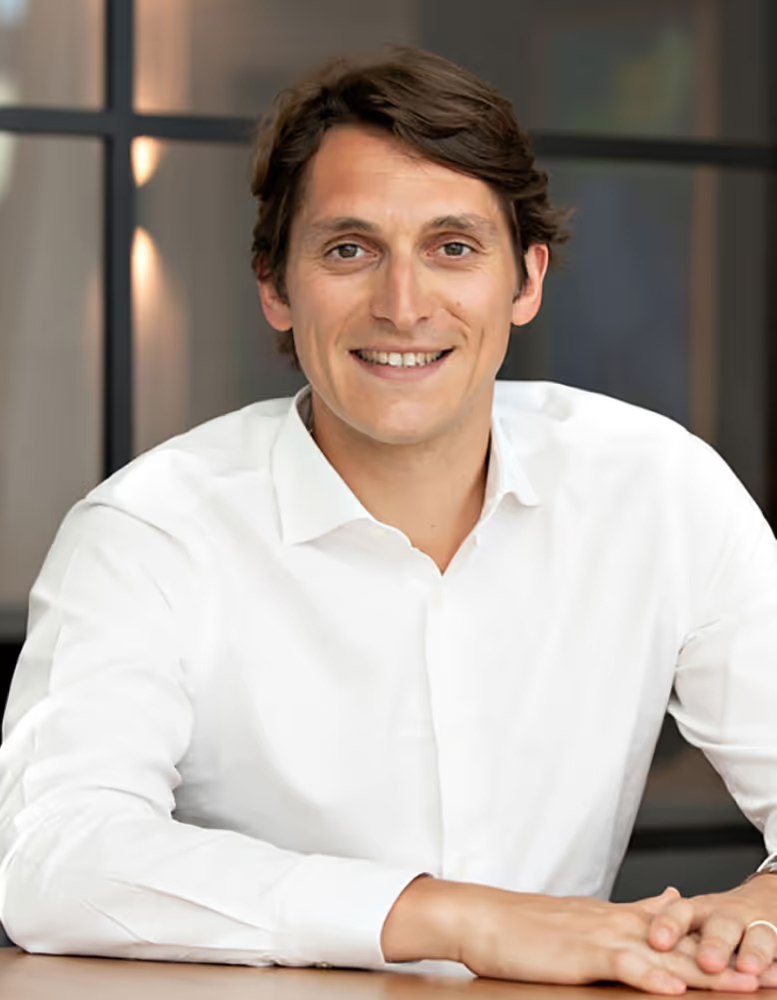Six key takeaways from TS Anil’s fireside chat at our Fintech Summit EMEA

Monzo CEO TS Anil’s impressive career spans almost three decades in retail banking and consumer payments all over the world, including India, Japan, Singapore, the US and now the UK. When TS took on the leadership role at Monzo back in May 2020, the pandemic and its associated lockdowns were taking grip globally and the road ahead looked rocky for many organisations - banks included. Fast forward to today and Monzo has gone from strength to strength with:
- 7M customers across the UK using Monzo to spend and manage their money, making it a top ten UK bank by customer numbers
- 1.8M customers added in 2022 alone
- Customers voting it Best British Bank in 2022
- A Net Promoter Score of 70 versus the industry norm low teens
- A team of 2,500+ work from Monzo’s London HQ and remotely
Having made the leap from decades in traditional financial institutions to Monzo, it’s clear that TS not only saw the power of digital-only banks, but something special in Monzo specifically. On stage at our Fintech Summit EMEA, TS shared that there was a “wow” moment when he met the Monzo team. The fact they’d found “magical product market fit”, delighting customers and inspiring loyalty to the Monzo brand to the extent that users felt and were shaping the company’s destiny, made it clear the company was a rocketship. In his discussion with Sonali, TS shared his learnings and insights, including why he welcomes competition from industry incumbents, the importance of embracing regulation and more. Here are six key takeaways.
Don’t shy away from being a better version of the old, but do it in parallel with driving forward the new
There has been talk about reinventing banking and financial services for individuals and businesses for years, but making this a reality from inside an incumbent was hard. TS highlighted that legacy technology, mindsets and business models have held back industry transformation and, while software has consumed numerous different sectors worldwide, financial services has only been tackled in thin slithers. For example, the US fintech industry has great P2P and online payments companies, but no one has reinvented the whole space. For TS, this “was a huge unscratched itch as ultimately money is the operating system of our lives and yet customers are uniformly underserved in terms of helping them understand money better, giving them the tools to make good decisions, providing them with transparency and putting them in control of their money.”
It’s incredibly important that the old is done better. “No one gets excited about queuing up at a branch for something quite basic or having to wait two weeks to open an account - it's really important that every aspect of what we do today with our financial lives takes leaps forward…in terms of capability, tools, features, ease of design and convenience,” said TS.
The industry’s existing business models also need to change as many of the current business models for financial services are built around a combination of customer vulnerability, a lack of customer understanding and customer inertia.
Alongside the old being improved, placing new tools in the hands of consumers drives new behaviours and shifts the power relationship between money and the individual. Rather than feeling money controls them, new tools enable consumers to take control of their money. As an example, back in 2018, Monzo researched, developed and launched a feature allowing its customers to block gambling transactions. It was the first of its kind, offering a friction-based banking tool to help people with gambling addiction to self-exclude. Less than 10% of the customers who’ve used the gambling block since its launch in June 2018 - 300,000+ - have since disabled it. Now, around 60% of banks offer this feature.
When incumbents copy what you're doing, it’s a good thing - they’re helping to educate and raise customer standards
As more big incumbents start to offer new services competing with Monzo, TS remains unfazed. He welcomes the fact they’re raising customer standards, better educating consumers and shaking up inert customer bases. It’s also not new:
“Startups have always had to contend with deep-pocketed incumbents, competitors who’ll throw marketing at the problem and use the deep pockets to continue to protect their businesses or grow share. That’s been around for a while, but incumbents don't have a great history of reinventing their own industries.”
In TS’ view, there’ll be a few incumbent banks globally who’ll be successful at helping to reinvent the industry but new players coming into the space are still scratching the surface of this huge opportunity.

Owning its technology stack is critical for Monzo and its long term vision
Having full ownership of its technology stack has been a core component of how Monzo was built and its vision. TS stated: “If your mission is to win and win at scale, it's mission critical.”
TS then went on to explain that there are three key things that led to the company building its tech stack natively:
- Resilience - “When you’re banking people's life savings and it's the core part of what you're delivering to customers to rely on third party suppliers and hope it all works doesn't feel like the right long term strategy…That resilience and promise to our customers is something that we should own and control the destiny of as closely as possible.”
- Innovation - “When you're building products that the industry doesn't have today and making big leaps forward in terms of thinking up new ideas, new ways in which customers should think about their money and engage with it, it's good to be able to build things that the existing industries platforms just don't have today. The product velocity that gets built off owning your own tech stack can start to become a massive differentiator.”
- Margins - “In the early days, when we launched prepaid, the amount we were paying to the prepaid processor was extraordinary. The idea that you share that much margin when you don't need to because you can build a better platform that’s more resilient and has more innovation built into it at a fraction of that cost just doesn't make sense from a longer term perspective.”
Startups should embrace regulation and accept that ultimately companies and consumers benefit
Monzo became a regulated bank in August 2016 and has always been held to the highest standards. TS stated that every industry has one key thing they need to be great at to create a real moat around their business. For ecommerce retailers, managing the logistics of delivery is core to being successful at scale. Smartphone manufacturers can’t just get excited about great designs and touchscreens, they have to care about supply chains and manufacturing at scale, so great devices can be delivered into customers’ hands at a cost they're willing to pay.
“In fintech, it’s about banking people's life savings. You have to be really good at controls and regulations. If you get really good at it, it builds a moat around your business. Early on we made the decision that Monzo was going to be a fully regulated bank in the UK. This meant solving the hardest problems first.”
Finding common ground and building your control design accordingly is key. The outcomes the regulators are solving for are the right outcomes and customer trust is vital.
Crises separate great companies from the rest because they test them in many different ways
For TS, there are three things that define a great company:
- Great products - are you building something that customers love and value today and will value for the long term?
- Great business models - is your business model one where you make money responsibly, have quality revenues, and it's real P&L?
- Great teams - there are many ways to define this, but everybody knows a great team when they see one
In a crisis, all of these get tested. Companies that don’t have a great product are effectively buying customers through a combination of marketing and pricing. When a crisis hits, the purse strings tighten and growth starts dwindling. It’s then clear that a company hasn’t built something customers love and that’s when those who have built great products step into the spotlight. A similar situation occurs with business models. When a business model comes under stress due to the macroeconomic climate, credit losses rising or it gets tougher to raise, companies that have built high quality revenues stand out.
TS then explains that, in his view, high quality revenues are sustainable and unassailable. Sustainable revenues are diversified rather than reliant on the “sentiment du jour” and unassailable revenues mean you can “stand up and defend what money you make, why you make it and how you make it.”
When making a founder to CEO transition, the most important thing is to learn, learn, learn
When TS stepped into the Monzo CEO role following Tom Blomfield’s decision to step down, the transition was seamless, with Monzo’s founding story and history celebrated while the business continued to drive forward. Sonali asked TS what his advice would be for others and evolution and learning vital:
“Prior to Monzo, the Big Tech industry had been doing the founder to CEO transition for decades. Look at Google, Apple, Amazon, Facebook, and so on and you see every version of this…The backdrop for this is evolution because - as companies continue to grow and markets and businesses evolve - you need different things at different points in time. If you accept evolution as the natural state of being, that's the good context to think about it in…From a personal level, when you're the person taking over from a respected founder, the first and most important thing is learn, learn, learn. There's so much to learn and if you rely on the muscles you've already built, I feel you’re doomed. Be curious and figure out what works, what doesn’t work and why.”
TS also noted that in the first few months he would talk to investors, colleagues and others in the market to learn as much as possible from others and evolution has to be intentional not passive. To close, TS states:
“Tom and the founding team built something incredible, and we build on the shoulders of those giants. The company’s history is what creates the conditions for success and the next stage of evolution…It’s an ongoing journey, but you need to be intentional.”
Great companies aren't built alone.
Subscribe for tools, learnings, and updates from the Accel community.


